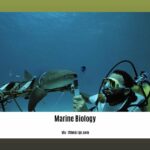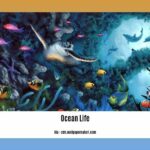Rachel Carson, a marine biologist whose profound love for the ocean propelled her to become a pivotal figure in the environmental movement, was posthumously awarded the Presidential Medal of Freedom in 1980. This highest civilian honor, bestowed by President Jimmy Carter, recognized Carson’s groundbreaking work, particularly her book Silent Spring, which exposed the detrimental effects of pesticides and sparked a national awakening to environmental concerns. This article delves into Carson’s life, her impactful work, and her enduring legacy.
From Ocean Depths to Literary Heights
Born in 1907, Rachel Carson’s fascination with the natural world, especially the ocean, began in childhood. This passion led her to pursue a career as a marine biologist with the U.S. Bureau of Fisheries. Her initial work focused on scientific research, but Carson possessed a rare gift for translating complex scientific concepts into captivating prose. She penned a series of books, often referred to as her “sea trilogy”—Under the Sea-Wind, The Sea Around Us, and The Edge of the Sea—which transported readers to the hidden wonders of the ocean world. These works established Carson as a celebrated nature writer, but her most impactful contribution was yet to come.
Silent Spring: A Clarion Call for Environmental Protection
Published in 1962, Silent Spring wasn’t merely a book; it was a watershed moment in environmental history. Carson meticulously documented the devastating consequences of widespread pesticide use, particularly DDT. She didn’t simply catalog the detrimental effects on wildlife; she illuminated the interconnectedness of all living things, revealing how these chemicals could accumulate in the food chain, potentially affecting human health. The book’s evocative title, Silent Spring, conjured a chilling image of a world devoid of birdsong, a stark warning of the potential consequences of unchecked chemical use. Explore the mercaba and its connection to this interconnectedness.
The Aftermath and the Rise of Environmentalism
Silent Spring ignited a firestorm of controversy. The chemical industry, threatened by Carson’s findings, launched a vigorous campaign to discredit her work and question her scientific integrity. However, public opinion largely sided with Carson, fueled by growing evidence of environmental damage and a rising awareness of the potential risks to human health. Silent Spring is widely credited with catalyzing the modern environmental movement, leading to the ban of DDT in the United States and the creation of the Environmental Protection Agency (EPA). You might also be interested in learning about moss agate spiritual meaning and its connection to nature.
A Posthumous Honor: The Medal of Freedom
Rachel Carson tragically passed away from cancer in 1964, two years after the publication of Silent Spring. She didn’t live to witness the full impact of her work or the profound changes it set in motion. In 1980, President Jimmy Carter posthumously awarded Carson the Presidential Medal of Freedom. This prestigious award not only acknowledged her scientific contributions but also her courage in challenging powerful industries and her unwavering dedication to protecting the natural world. Some historians suggest that the timing of the award, coming years after the initial controversy surrounding Silent Spring, further underscores the significance and lasting impact of Carson’s work.
The Enduring Legacy of Rachel Carson
Decades later, Rachel Carson’s legacy continues to resonate. Her work serves as a powerful reminder of the interconnectedness of all living things and the delicate balance of ecosystems. She demonstrated the critical role of scientific integrity, the power of compelling storytelling, and the importance of speaking truth to power, even in the face of adversity. Ongoing research continues to explore the long-term impacts of chemical pollution, building upon the foundation laid by Carson’s pioneering work. Her legacy inspires continued vigilance and action in addressing contemporary environmental challenges, such as climate change and biodiversity loss. It encourages us to ask ourselves: What can we do to contribute to a healthier planet? How can we carry her torch forward?
Which Marine Biologist Received the Medal of Freedom?
The marine biologist who received the Presidential Medal of Freedom was Rachel Carson. This award cemented her place as a pivotal figure in the environmental movement, recognizing her groundbreaking work in raising awareness about the dangers of pesticides and inspiring a generation of environmentalists.
Who Was the Marine Biologist Awarded the Medal of Freedom by Carter?
President Jimmy Carter awarded the Presidential Medal of Freedom posthumously to Rachel Carson, the marine biologist and author whose work, especially Silent Spring, played a crucial role in the development of the modern environmental movement.
What Was Rachel Carson Best Known For?
Rachel Carson is best known for her groundbreaking book Silent Spring, which exposed the harmful effects of pesticides and spurred the modern environmental movement. While she started her career as a marine biologist and authored several acclaimed books about the ocean, it was Silent Spring that brought her widespread recognition and cemented her legacy as a leading environmentalist. This book led to significant policy changes, including the ban of DDT, and continues to inspire environmental activism today.
- Unlocking 2-Letter Words with U: The Definitive Guide - April 4, 2025
- Unlock Words with the Letters THREE: Top Unscramble Tools 2025 - April 4, 2025
- Master Scrabble: X & Z Words for High Scores - April 4, 2025

















1 thought on “Rachel Carson: Marine Biologist, Silent Spring, and the Path to the Presidential Medal of Freedom”
Comments are closed.